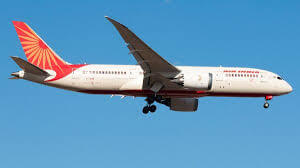
DGCA Investigates Air India's Boeing 787 RAT Incident
A serious safety incident has arisen in the Indian aviation sector involving an Air India Boeing 787-8 Dreamliner. The aircraft deployed its Ram Air Turbine (RAT) without any command during its flight to Birmingham from Amritsar, just before landing. This unexpected deployment raised alarms among aviation authorities and passengers alike.
The Directorate General of Civil Aviation (DGCA) has launched an investigation into the incident, which took place on October 4. According to officials, the RAT is primarily designed to provide emergency power in cases of engine failure, hydraulic issues, or electrical malfunctions. Fortunately, despite the RAT deployment, the aircraft landed safely.
This incident comes on the heels of a tragic crash involving another Air India Dreamliner, which killed 260 people in June. The Federation of Indian Pilots (FIP) has expressed serious concerns regarding the safety protocols of the Boeing 787s in India. They have urged the DGCA to conduct comprehensive inspections of the electrical systems in all such aircraft operating in the country.
In its statement, Air India indicated that the RAT was deployed automatically during the final approach at around 400 feet. However, the pilots did not report any abnormalities related to the aircraft's performance. The DGCA has stated that necessary maintenance actions recommended by Boeing regarding uncommanded RAT deployment have been completed, and no discrepancies were found.
The FIP has raised concerns that the Bus Power Control Unit (BPCU), which manages the electrical power system of the aircraft, may have malfunctioned, leading to the RAT's uncommanded deployment. The pilots have called for a thorough examination of all operational Boeing 787 aircraft in India, emphasizing that safety must be a top priority.
As of now, Air India operates 33 Boeing 787 aircraft, and the safety of these planes is paramount, especially after the previous crash. The DGCA is committed to ensuring that all necessary investigations are carried out to maintain the highest safety standards in Indian aviation.
In conclusion, the incident highlights the ongoing need for vigilance and rigorous safety checks in the aviation industry. As investigations continue, both the DGCA and Air India are under pressure to address these critical safety concerns to restore public confidence in air travel.











